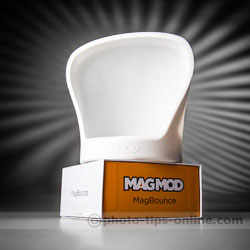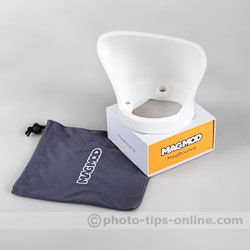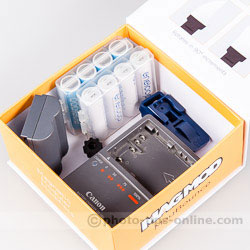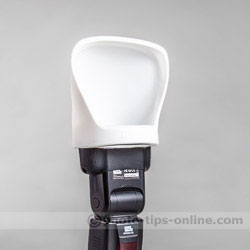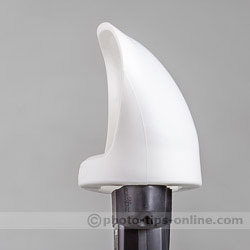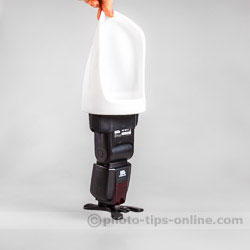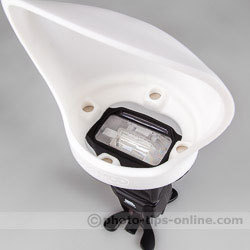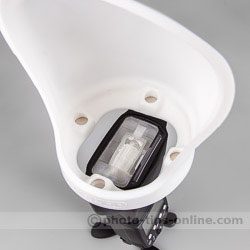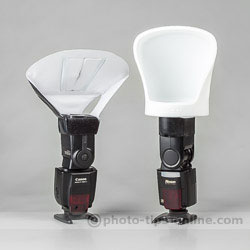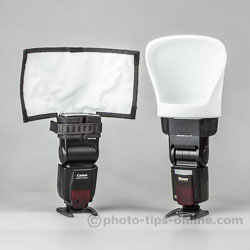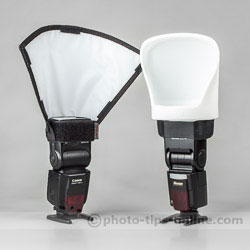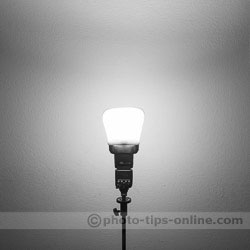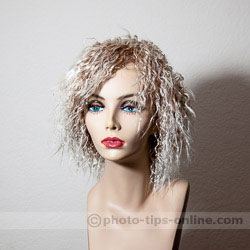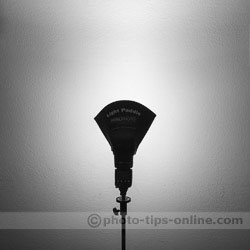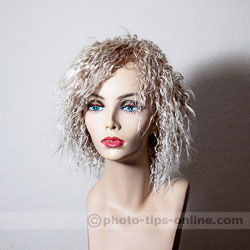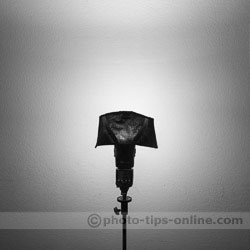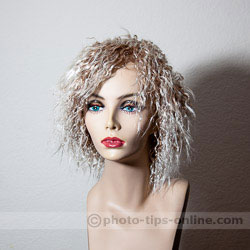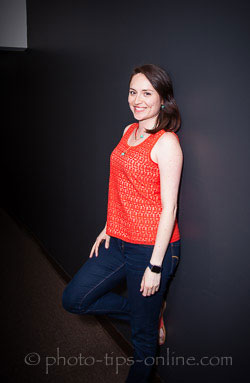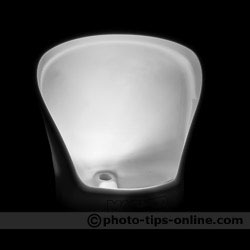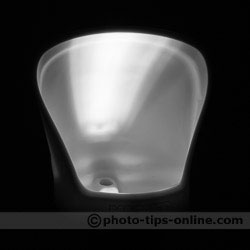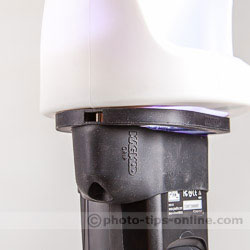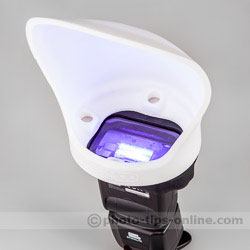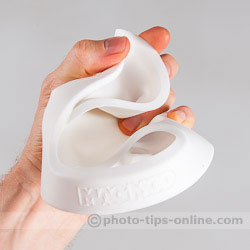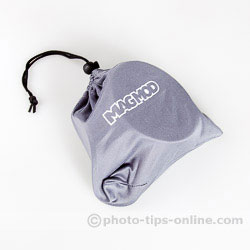MagMod MagBounce speedlight reflector review
MagMod is a unique system that employs earth magnets and silicone rubber to modify the light quality of your speedlight. We have previously reviewed some of the MagMod accessories, and today we are taking a closer look at MagBounce – a magnetic reflector / bouncer.
The MagBounce comes in a compact premium box that includes a microfiber carrying pouch. As we mentioned in the earlier reviews, we really like reusing the MagMod boxes for small things around the studio, like, for example, the Frio cold shoe or even batteries. The cloth pouch is nice to have, especially when you carry multiple MagMod items together.
The MagMod MagBounce reflector is molded out of white silicone rubber. It attaches to your flash using the MagGrip band and integrated magnets. The MagGrip is sold separately, but it can be used with other MagMod accessories.
In the past, we used some light modifiers that had troubles staying securely attached to the flash head under certain circumstances. Well, this is definitely not a problem with the MagBounce. In fact, the magnets are so strong that you can lift the flash by grabbing the MagBounce. You can even lift the flash with the camera it's attached to. Obviously, we do not recommend doing it, and we only did it to test the strength of the magnets ;).
The MagMod MagBounce is perfect for the event photography when the flash has to stay on camera and you move around a lot: weddings, parties, concerts, etc. It can also be used as a small softbox alternative for off-camera applications.
When capturing the moment, you often need to rotate your camera from landscape to portrait orientation. For the flash bouncer to still point toward the subject, it needs to be mounted on a narrow side of the flash head. Some speedlight reflectors, like LumiQuest Quik Bounce, designed to be permanently mounted on the narrow side. With the MagBounce, you can simply turn it 90 degrees when shooting in portrait orientation. Since the magnets are so easy to attach and detach, the switch is almost instant. The following images show how the MagBounce employs 4 magnets to mount along the longer and shorter edges of the flash head.
We have to note that the MagBounce is a relatively heavy speedlight modifier. We don't have problems with its weight itself, which is about 10 oz / 280 grams (including the MagGrip). However, some flashes, like, for example, Phottix Mitros, do not lock heads in the vertical position, and the MagBounce is heavy enough to cause the flash head to slam down when moving around. This is a fairly common issue with speedlight modifiers. We've seen the same problem with early versions of Rogue FlashBenders or Gary Fong Lightsphere, for example. So, we recommend checking your flash head if you are considering this modifier for on-camera work.
As you can see in the following images, the MagBounce is sized similarly to the LumiQuest Quik Bounce, Small FlashBender and Honl Photo Light Paddle.
Judging by the size, we expected the light quality of the MagMod MagBounce to be similar to its rival. However, we expected the light loss to be higher compared to the competition, since the MagMod unit is made of the rubber, and therefore, some of the light comes through its bounce surface. We were pleasantly surprised that the MagBounce performs similarly to other reflectors both in terms of the light quality and light loss. As you can see in the following series of images, there is no significant difference in the exposure between the photos taken with the three speedlight diffusers (the flash power was set to same manual value in all test shots). If anything, the MagBounce spreads the light a bit wider horizontally, which is good for group photography.
The portraits below are the examples of using the MagBounce on location.
In our tests, the light quality wasn't varying too much depending on the flash zoom, but we found that the values starting from 70mm were causing some additional light loss. So, we recommend setting the flash zoom between 20mm and 50mm. The left image below shows how the light hits the surface of the MagBounce at 20mm, and the right photo is taken at 200mm flash zoom.
Since the MagBounce is a part of the MagMod family, if can be easily mixed with the MagGel if you need to color-correct your flash or add a color effect. Simply slap the gel holder between the bouncer and the MagGrip, and you are good to go.
Finally, we want to add that the MagBounce is very portable. You can squish and stick it into your gear bag (with or without the carrying pouch). When you pull it out, the MagBounce instantly pops open.
To sum up, the MagMod MagBounce is a great speedlight reflector, which can instantly attach to a flash that wears a MagGrip band. The light quality is great (arguably, slightly better than competition) for a modifier of this size. It can be used on- and off-camera with or without gels. It works perfectly with most flashes, but it should be used with caution with some speedlights that don't have a head lock. It is priced competitively, currently at about 50 USD (please check the latest prices below). The required MagGrip band, however, will cost you additional 25 USD, but you are buying into a great system that delivers an extremely high speed of interchanging and combining multiple speedlight accessories. We can certainly recommend the MagBounce for photography professionals and hobbyists alike.
